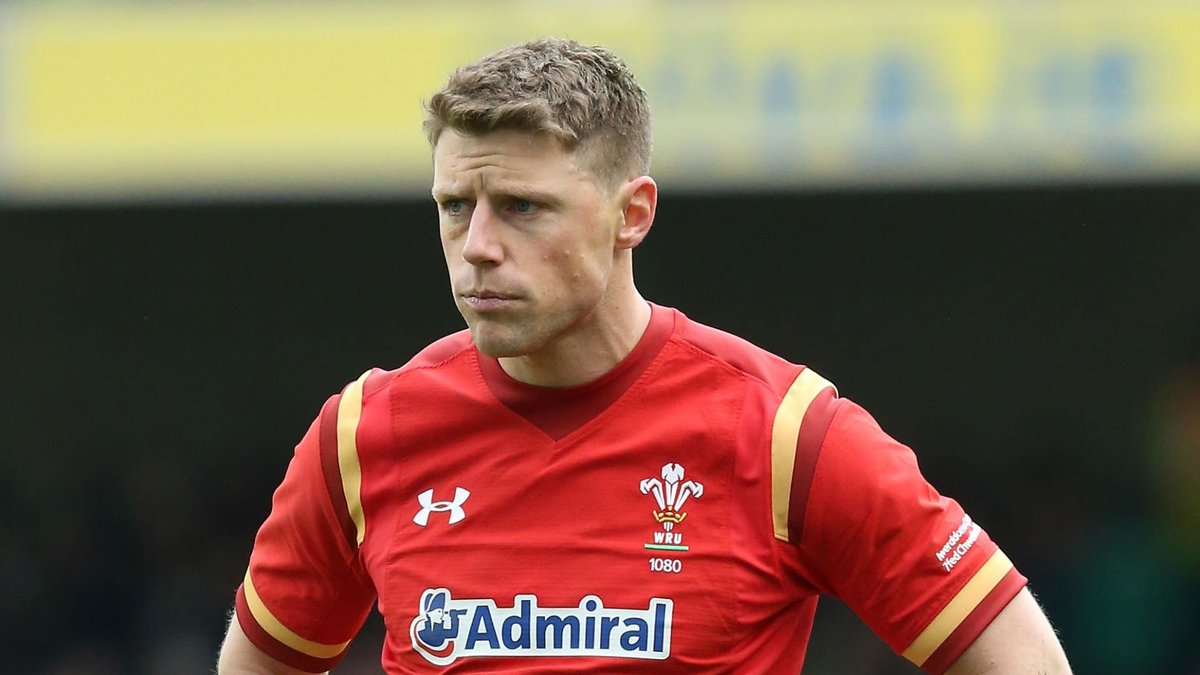Wales include one uncapped player in 36-man Six Nations squad, ignore calls for Priestland recall

Under pressure Wales boss Wayne Pivac has named a 36-strong squad for the upcoming Six Nations which starts at home to Ireland on February 7, including uncapped Scarlets back row Josh Macleod. The forward had been named in the autumn squad last year but didn’t feature after picking up an injury before that campaign began.
Ken Owens, Alun Wyn Jones and Josh Navidi are all selected after injury concerns but the clamour to have Rhys Priestland recalled came to nought as the Bath out-half was ignored and Cardiff out-half Jarrod Evans included.
Priestland, 34, hasn’t played Test rugby since 2017 but there was speculation that a mooted switch back to Wales from Bath this summer could have earned him a recall.
Wales lost their closing Six Nations match to Scotland in October and then finished fifth in the Autumn Nations Cup, the tournament where they gave Test debuts to Kieran Hardy, Callum Sheedy, Johnny Williams and Louis Rees-Zammit. “We are hugely looking forward to meeting up as a squad on Monday and to the forthcoming campaign,” said boss Pivac. “The Guinness Six Nations is an important tournament and we have selected a squad accordingly.
“As we consistently spoke about, the autumn for us was about opportunity and development, looking ahead to RWC 2023 and it served that purpose for us. This campaign is different, it is tournament rugby and we are excited to get going and to play our part.
? ????? ???? ? ?
?
Your squad for the #GuinnessSixNations. ?
?
Eich carfan chi ar gyfer y Chwe Gwlad.?
?
??????? #HWFN pic.twitter.com/EjB0YuaOts— Welsh Rugby Union ??????? (@WelshRugbyUnion) January 20, 2021
“We have picked a squad for this tournament based on form and we are excited to meet up on Monday and to get our preparation underway.”
WALES 2021 GUINNESS SIX NATIONS SQUAD
Forwards:
Rhys Carre (Cardiff Blues) (12 Caps)
Wyn Jones (Scarlets) (30 Caps)
Rhodri Jones (Ospreys) (17 Caps)
Elliot Dee (Dragons) (33 Caps)
Ryan Elias (Scarlets) (17 Caps)
Ken Owens (Scarlets) (77 Caps)
Leon Brown (Dragons) (12 Caps)
Tomas Francis (Exeter Chiefs) (52 Caps)
Dillon Lewis (Cardiff Blues) (28 Caps)
Jake Ball (Scarlets) (49 Caps)
Adam Beard (Ospreys) (21 Caps)
Alun Wyn Jones (Ospreys) (143 Caps)
Will Rowlands (Wasps) (5 Caps)
Cory Hill (Cardiff Blues) (29 Caps)
Dan Lydiate (Ospreys) (62 Caps)
Josh Navidi (Cardiff Blues) (24 Caps)
Aaron Wainwright (Dragons) (27 Caps)
Taulupe Faletau (Bath) (81 Caps)
Josh MacLeod (Scarlets) (*Uncapped)
Justin Tipuric (Ospreys) (80 Caps)
Backs:
Gareth Davies (Scarlets) (57 Caps)
Tomos Williams (Cardiff Blues) (20 Caps)
Kieran Hardy (Scarlets) (2 Caps)
Dan Biggar (Northampton Saints) (87 Caps)
Callum Sheedy (Bristol Bears) (4 Caps)
Jarrod Evans (Cardiff Blues) (6 Caps)
Johnny Williams (Scarlets) (2 Caps)
Jonathan Davies (Scarlets) (85 Caps)
Nick Tompkins (Dragons) (8 Caps)
Owen Watkin (Ospreys) (25 Caps)
George North (Ospreys) (98 Caps)
Josh Adams (Cardiff Blues) (29 Caps)
Hallam Amos (Cardiff Blues) (22 Caps)
Louis Rees-Zammit (Gloucester) (4 Caps)
Leigh Halfpenny (Scarlets) (93 Caps)
Liam Williams (Scarlets) (67 Caps)
Players unavailable for selection due to injury:
Rob Evans, Nicky Smith, Samson Lee, Ross Moriarty, James Davies, Ellis Jenkins, Gareth Anscombe, Rhys Patchell, Scott Williams, Jonah Holmes.





































